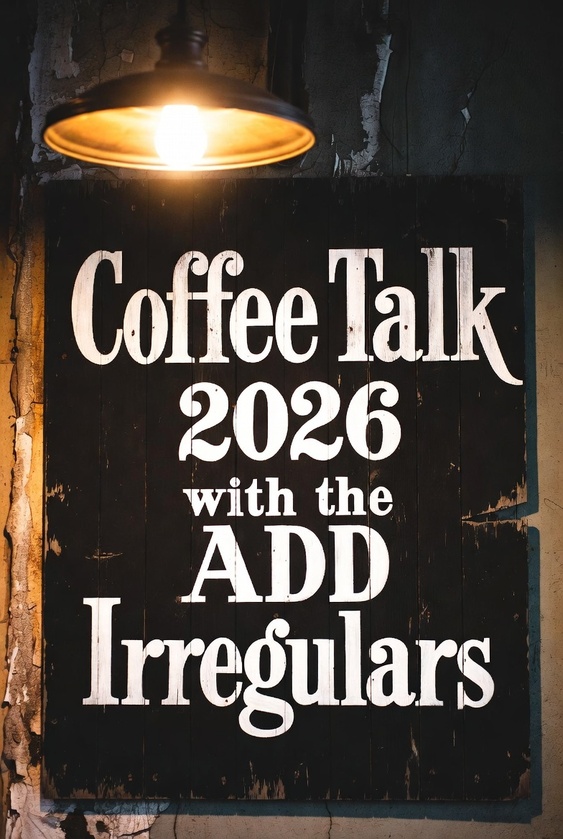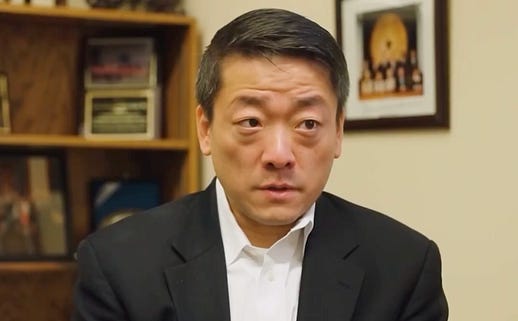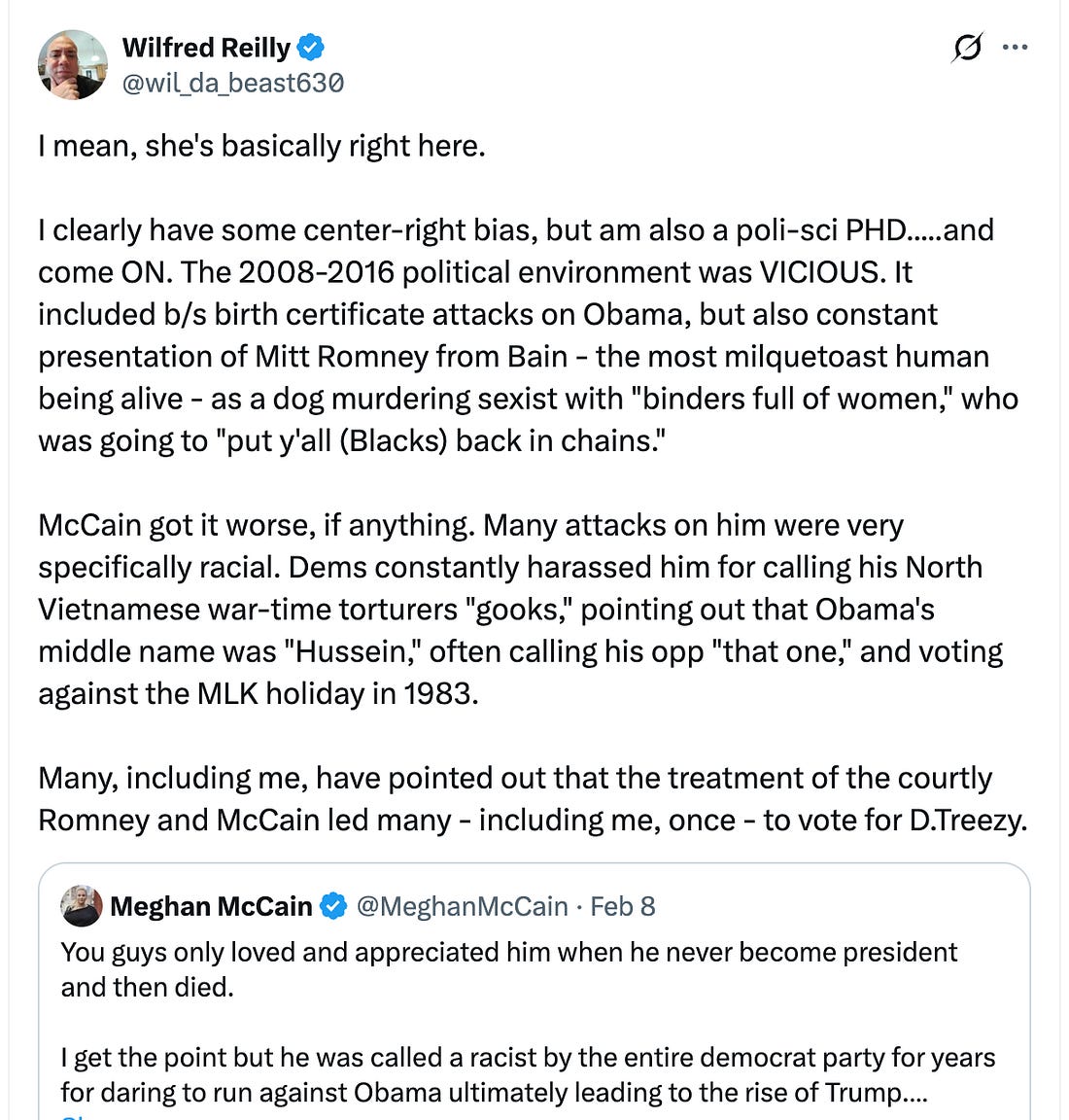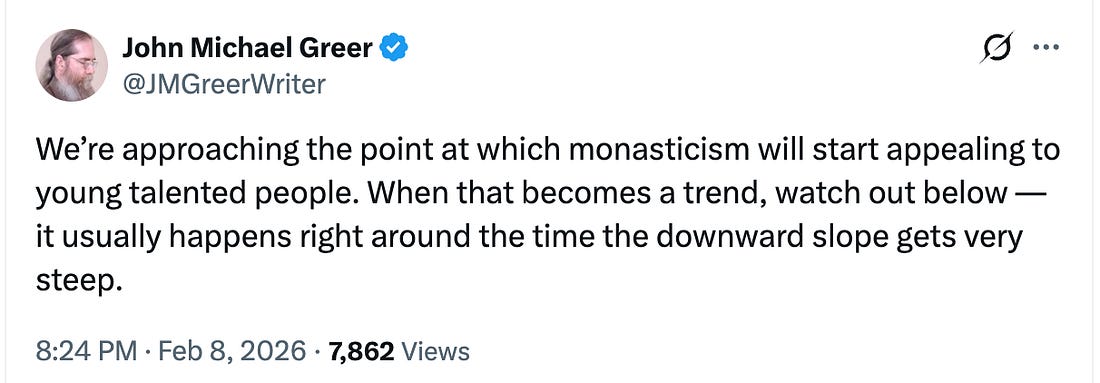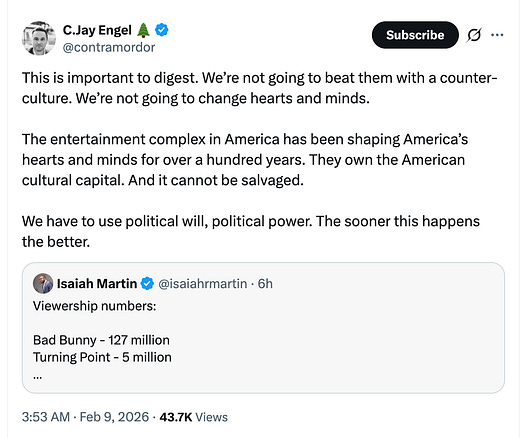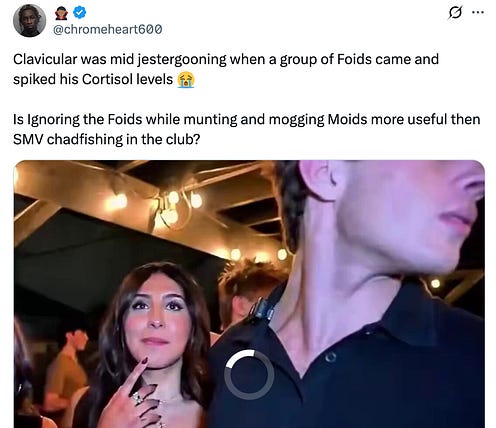Another Day, Another Killer Tranny
And: Europe's Dimming Lights; 'Meno-Divorce'; Cosmopolitan Reactionaries

In Minnesota — designated in law by Gov. Tim Walz as a “trans refuge state” — tranny berserker shot up a Catholic church full of children — children! — at mass. Does it get any more demonic than that? That photo above is from a video he posted before massacring the kids.
His mother used to work at the school. The shooter had once attended there. Earlier, Mom had signed off on her son changing his name to reflect his chosen female identity.

Notice the rifle superimposed on the LGBT omniflag, with the slogan “defend equality.”
I wonder how the Minnesota lieutenant governor Peggy Flanagan, photographed below, feels today:

She probably feels no different than she feels yesterday. I woke up in Rome this morning seeing social media full of liberals and talking heads blaming Donald Trump, J.D. Vance, and others for asking for prayers for the :::checks notes::: Catholic children shot and killed while at prayer! That, and urging people not to blame transgenderism, on account, I guess, of transgenderism being a religion of peace, or the usual bullshit.
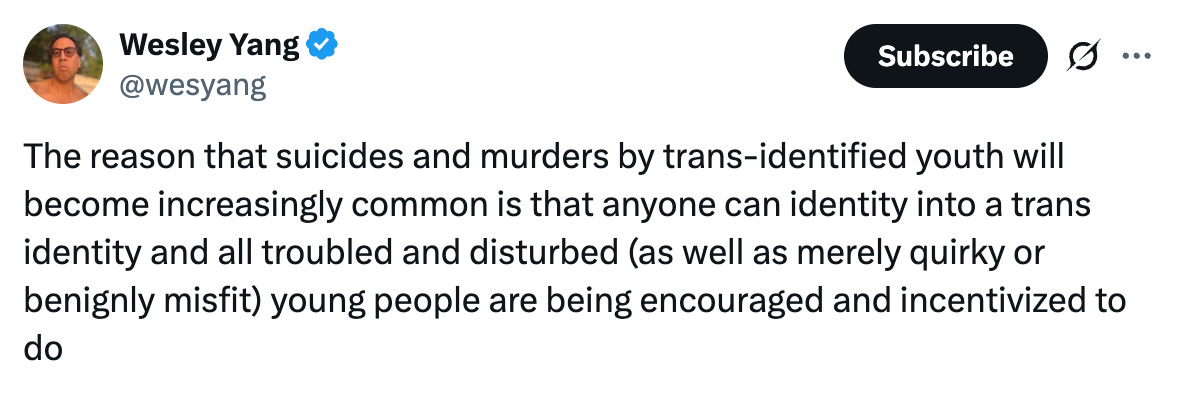
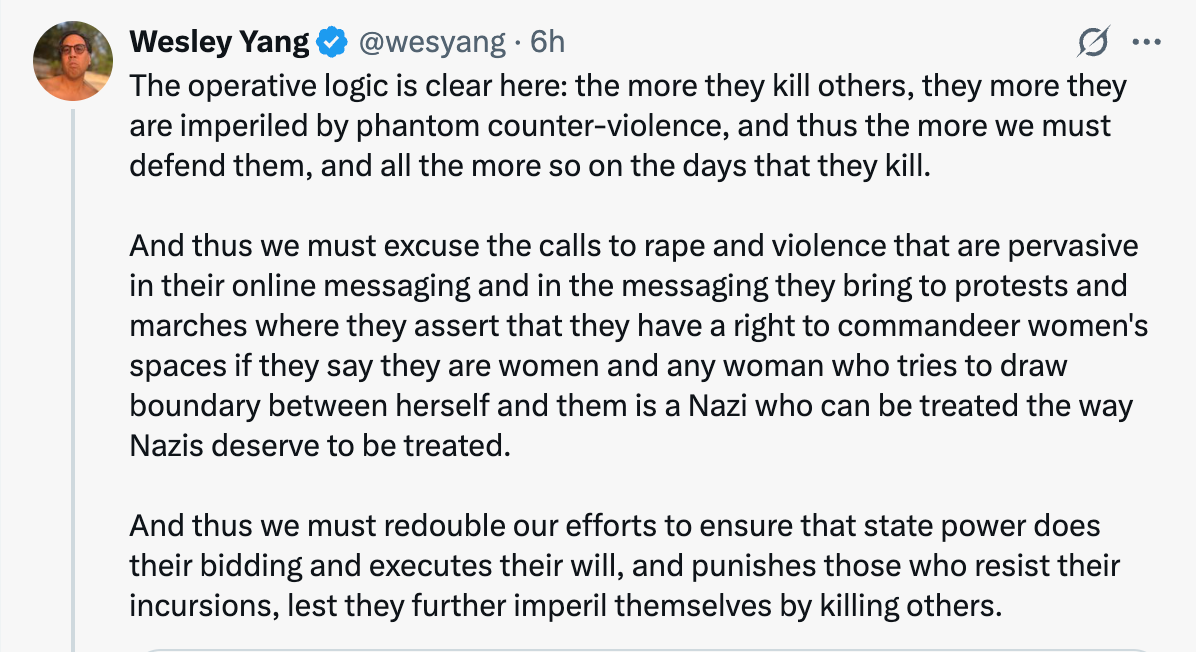
You will recall that the Covenant School shooting in Nashville was also carried out by a female-to-male tranny who had once studied there. I have a friend who was part of the Covenant community. The devastation of that evil event on the lives of the parents of kids there is unspeakable.
Transgenderism is a form of mental illness. People with gender dysphoria need compassionate psychiatric help. What they don’t need is the “affirmation” that our sick culture gives them.
Note too that in the killer’s video, he wrote on one gun “Kill Donald Trump.” ABC News reported that he had “the name of President Trump written on one of the guns.” True, but misleading: HE WANTED TO MURDER THE PRESIDENT. One might suppose from the news reporter’s description that the killer was a Trump supporter.
I am beyond done with these people and their apologists, especially among media and liberal politicians. I want normality back.
Europe’s Dimming Lights
In other news about the cost of false compassion and sentimental humanitarianism, I was out for dinner in Rome last night. I met some old friends and new at my table, folks from all over Europe. We talked about politics for a while. All around the table, little to no confidence in their governments. Disgust with migrant and Muslim crime. Fear that civil war is ultimately coming, because people’s backs are against the wall.
A German at the table found out I live in Budapest. He had great things to say about Hungary, which he had recently visited. “Before I left, all my German friends told me to be careful in Viktor Orban’s country,” he said. “They were seriously worried. But then I got there, and it’s nothing like they think.”
“Yeah,” I replied, “we see that a lot. Older western Europeans usually end up saying that Budapest today is the Europe they remember from thirty years ago, in terms of safety and order.”
The German, who was on the younger side, said it really does make a big contrast with his country. (Remember, this is Germany we’re talking about, the land where nobody crosses the street against the light.) I told him about an American graduate student studying in Germany, whom I met last summer in Budapest. The American was shocked by how free and open nightlife is in Budapest, with the street cafes full.
I said, “He told me that back in Germany, German people are withdrawing from going out on the weekends, because they are scared of migrant violence.”
“Yes, that’s true,” said the German, sadly.
Similar stories around the table from all over Europe. How much longer can these people stand it?
In UnHerd, the distinguished German columnist Wolfgang Munchau delivers a despairing verdict on his continent. Excerpts:
If you’ve read The Restaurant at the End of the Universe by Douglas Adams, you’ll immediately recognise what happened to the Europeans last month. They went into the Total Perspective Vortex. This is a torture device designed by a mad scientist which reveals your insignificance in comparison with the rest of the universe. Almost all who enter are annihilated. That understanding is just too terrible to survive.
More:
I have been a pro-European all my life. But a Europe of coordinated subservience is not one worth having. The whole idea of European integration was to address collective action problems. The EU no longer does that.
Instead, it set out on a path of no return. This has led it a place of low growth, high debt, and a lack of political majorities that support change. Large and increasing portions of European citizens live off welfare. They have no interest in reforms that will invariably lead to a cut in their income. Demography plays havoc with democracy. In Germany, for example, I cannot identify a single political party with a coherent agenda for reform. In the UK, too, there is not one political party that has given serious thought to a post-Brexit economic model. In their decline, European countries are astonishingly similar. The UK, France and Germany are all currently discussing wealth and property taxes as a last and desperate measure. If, and when, this is implemented, they will end up with even less growth. They are running out of ideas.
I hate this. As an American who loves Europe, I want Europe to succeed. It cannot and will not, not with the mindset and the leadership it has today.
‘Meno-Divorce’
A reader sends this infuriating story about women who hit menopause, and decide they’ve had it with their husbands. Excerpts:
Melissa McClure's husband asked if it was a midlife crisis.
No, she told him: "I’m wide awake to the possibility of what my life can be, and it doesn’t include you.”
McClure wasn’t sleeping well. She had hot flashes. Her husband’s loud chewing sent her into a rage. His negative attitude bothered her, and she no longer felt appreciated as a wife and stepmother.
They had been together for 14 years, but perimenopause made her realize she wanted a divorce.
“We spend our entire adult lives taking care of our husbands or partners and children. We give so much of ourselves to other people as nurturers that we lose ourselves in the process,” says the photographer, 44. “It wasn’t a midlife crisis but an awakening.”
Do I want a divorce or is this menopause? It’s a question resonating with women in midlife, when hormones are changing as their stress is increasing – kids moving out and parents moving in and careers often at their peak.
Though divorce rates overall are dropping, divorce among adults 50 and older is increasing. In 1990, almost 1 in 10 of all divorces in the United States were among adults 50 and older. By 2019, that percentage had grown to almost 1 in 4, according to a study by Bowling Green State University’s National Center for Family and Marriage Research. That coincides with a time most women go through perimenopause and menopause.
The "menodivorce" is on the rise.
(I feel it necessary to state here that this had nothing at all to do with my own divorce. So please do not jump to a false conclusion.)
As the reader who sent this to me commented:
The poor schmucks they were married to? Of course none of them are interviewed; they don't factor at all into this tale of women's liberation. It's all about how SHE ditched HIM to find her TRUE SELF - his feelings, the kids' feelings be damned.
While granting that there are certainly situations in which people 50+ are better off divorced, all I can say is I hope the "I gotta be ME!" ladies in this article find themselves abandoned at Thanksgiving by their children and alone at age 80, depending on some hired hand to help them out of bed in the mornings.
Into The Hawleyverse
A reader writes:
I don't know if you are a fan of Noah Hawley, but you might look into his shows. He's tapping into a number of the themes you write about, albeit from a secular perspective.
Hawley is the showrunner for the television series Fargo, and currently, Alien: Earth. As I have been watching new Alien:Earth episodes, I was reminded about this Reddit thread about seemingly human characters that are implied to be supernatural: about https://www.reddit.com/r/TopCharacterTropes/comments/1mxewel/comment/na5pgk2/.
The comment thread refers to Hawley's television series, Fargo, and correctly points out that there's at least one character in each season who represents some sort of supernatural (usually evil) force. The Fargo series, if you don't know, generally refers to and expands upon the Cohen brothers' body of work. It isn't trying to be a reboot of the film. Each season is its own story, with characters and themes that are in conversation with the Fargo movie, but also the entirety of the Cohens' oeuvre.
This supernatural character is a common feature in Cohen movies; many have one or more characters with otherworldly qualities, meant to embody Satan or evil (Anton Chigurh in No Country, Sheriff Cooley in O' Brother) or good (Sam Elliott in Big Lebowski).
As noted in the Reddit thread, every season of Hawley's Fargo series has at least one such supernatural character, who is heavily implied to be an angel or a demon or some kind of pagan god.
Throw in some UFOs in Season 2, and we are in Diana Pasulka territory.
We are also in C.S. Lewis's space trilogy territory, where angels and demons are extrademensional beings, and where the Greek and Roman gods are actually good or evil beings that are servants of God (Mars and Venus) or fallen angels. I assume Hawley and the Cohen brothers don't use Lewis as a source, but their work reflects his ideas.
Which brings me to Alien: Earth. This is Hawley's newest series, currently streaming. I've seen most of the earlier Alien movies, and am enjoying the series, but what struck me recently is that in almost every Alien movie, and in this series, there is also usually a character that seemingly represents otherworldly, supernatural powers of good or evil. And these characters are not the murderous alien species, the Xenomorphs. The big baddies are usually the "synths," which are man-created androids. In the movies, the synths are almost always the reason that the Aliens are able to kill the humans. Especially, there is a synth played by Michael Fassbender called David, who is the Anton Chigurh of the Alien universe - a relentless and supernatural embodiment of evil. But David is an AI robot created by humans.
Anyway, this again reminded me of your and Paul Kingsnorth's writings about AI, especially the Basilisk, and your recent newsletters about ChatGPT. This, also, echoes That Hideous Strength, where the new technology is really just a mask for the demonic (and has to be defeated by the old powers of Merlin, pressed into service by the Christian God).
Even though the Cohen brothers are not Christian, I've always found their work to be brimming with Christian themes, and to reflect the kind of sensibility that you, Lewis, and Kingsnorth write about. Perhaps some of that is owing to their Eastern European Jewish ancestry. And Noah Hawley is picking that up, and also echoing Lewis (and you), probably without trying to. What this tells me, is that these ideas are swimming around in the zeitgeist - aliens and robots and angels and demons. But really just a return of the old gods, and the battle of good versus evil in an enchanted world.
This is all news to me. Thoughts, readers?
Ed West: Cosmopolitan Reactionary
The excellent Substacker Ed West writes about how travel is correlated with becoming more liberal, but he, a frequent traveler, becomes more conservative the more he sees of the world. Excerpts:
There are plenty of cosmopolitan reactionaries out there: I’m probably one, maybe you are, too. For one thing, many conservatives rightly argue that visiting non-western countries brings home how unique our own society and culture is, how unlike the rest of the world. It also illustrates how fragile our own inheritance is.
Although Sri Lanka was filled with gorgeous scenery and wildlife, none of this would make for an enjoyable experience were it not for the immense kindness of the people, gentle, civilised and welcoming.
He goes on to talk about how beneath the pleasant surface, Sri Lanka is a country mired in violence, and ethnic and religious conflict.
More:
One might even say that travelling had reaffirmed my prejudices, but I do wish that policy makers, politicians and commentators alike, read more history beyond Europe in the 1930s or America in the 1960s. Many universalist beliefs rest on a strange lack of curiosity about the world, a parochial cosmopolitanism that ignores how unusual our own political stability is, and contingent.
On the other hand, travel can also open one’s eyes to how far our own country has fallen, compared to those which employ policies regarded as ‘extreme’. A visit to Japan can make us recognise that we don’t need to accept such levels of squalor or crime, even if that country is far from perfect (it’s dying, to be frank). Closer awareness of China, even further from being perfect, suggests that diversity might not be a sign of flourishing globalisation but rather the symptom of an empire in decline.
One added reason for the growing agitation over quality-of-life crimes is that more young Britons are visiting Dubai, which has recorded robbery rates about one-hundredth the level of London. After growing accustomed to not thinking about theft, or taking a metro without being harassed by drug addicts, it’s incredibly depressing and rage-inducing to have to turn on alert mode again. The spell of defeatism, that this is an inevitable part of modern living because it’s like that everywhere, comes to wear away with more foreign travel beyond the west.
I write in this space a lot about Europe’s problems with migration and crime. That said, every time I visit America — my home country, a country I love, and a country to which I plan to return one day — I am aware of how much better the quality of life is here in Europe. I’m not just talking about better food. The thing that always hits me about American life is how fast everything moves. That, and how car-centric everything is. Yeah, the car thing is not exactly news, but when you get used to living in a city where everywhere you want to go is walkable, or accessible by excellent public transportation, you come to value it.
Mind you, I’m spoiled, living in Budapest; my friends in Paris, for example, don’t like taking the metro anymore, because all that migrant diversity has made it more dangerous. In fact, importing to many non-Westerners has made European cities more cosmopolitan, in a trivial sense, but also much less livable. I was born in 1967. Over the course of my lifetime, London has gone from being around 90 percent white British to today, being 36 percent white British. It is the capital of Britain, but most people who live there today are not of British heritage. Isn’t that incredible?
Budapest has migrants, but it remains an overwhelmingly Hungarian city. When you visit Budapest, you know that you are in the capital of the Magyars. I like that. And if they ask me, an American, to depart to keep their capital more Magyar, well, good on them. Traveling within Europe, and seeing what mass migration has done to great European cities, makes me more reactionary. I don’t want Budapest to be like every other blob city in the world. What sort of person wants cities and nations to surrender their particularity for the sake of some sort of abstract ideal of “diversity”? It’s crazy.
I remind you that Renaud Camus says the ethnic dimension of the Great Replacement could only have happened because the country’s elites decided first that their native, traditional culture, with its shared history and habits, were a Bad Thing that needed to be dissolved. A people who know who they are, and who value their literature, music, art, and culture, will not surrender it. The elites had to first dislodge the culture that was there, in part by demonizing it as nothing more than racism, sexism, colonialism, homophobia, and the rest, and replace it with the soulless managerial liberalism and superficial cosmopolitanism represented by Brussels and the EU. Last time I was in Brussels, the strongest impressions I had about the city was that it was home to a bunch of Europeans who are fanatical about LGBT, and a bunch of Muslims who have no intention of integrating. The only thing really European-feeling about it was the architecture and the beer.
I’m a Cosmopolitan Reactionary precisely because I love Europe, I want it to remain Europe, and I realize how very, very hard it was for Europe to become Europe, over many centuries of suffering and struggle. And they’re throwing it all away, chasing a corrupt dream of sentimental liberalism. All those people from outside the West they’re letting in are escaping dysfunctional cultures, but many of them bring the same cultures that made their own native countries undesirable. What good does that do Europe?



